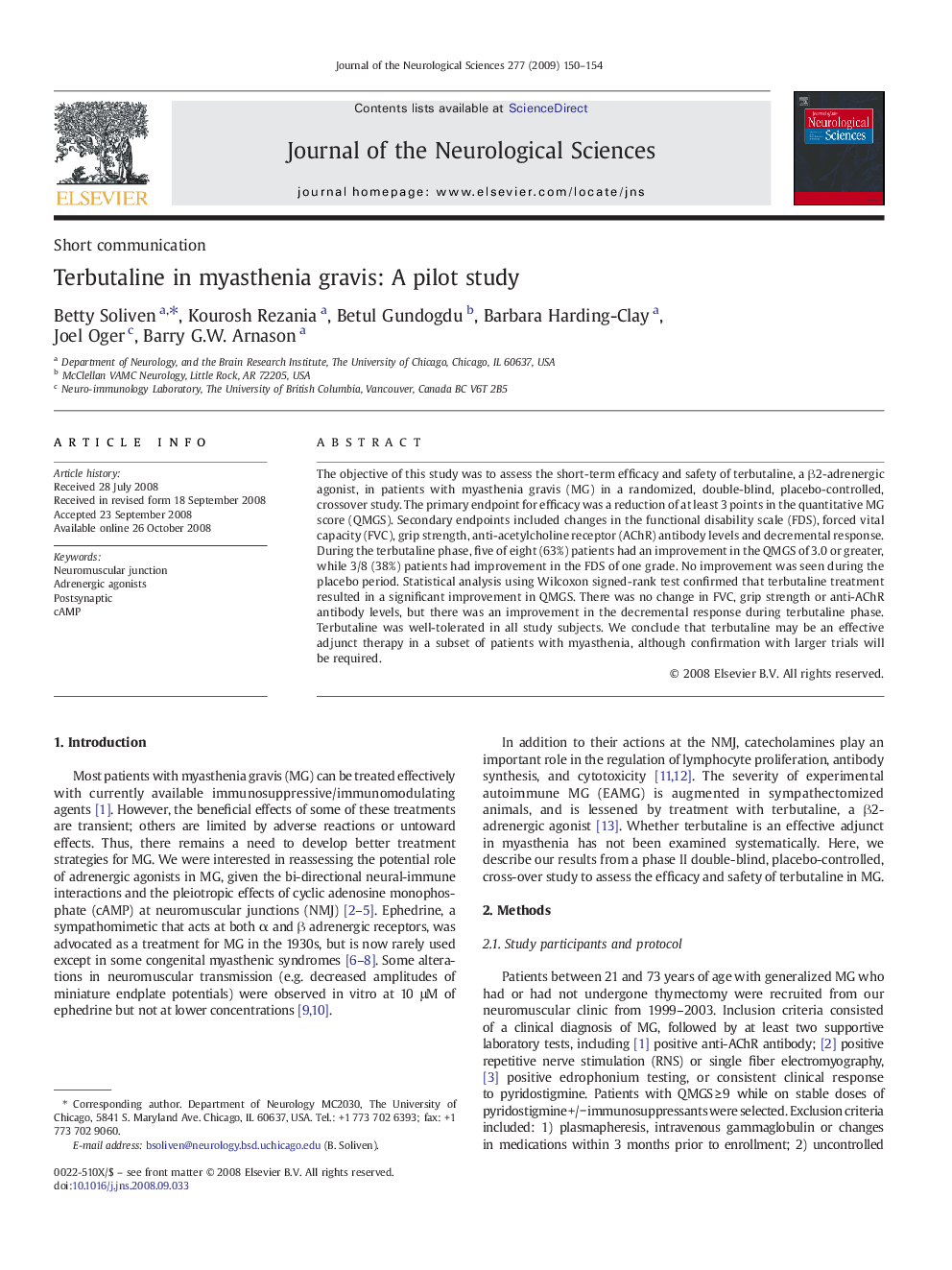| Article ID | Journal | Published Year | Pages | File Type |
|---|---|---|---|---|
| 8283539 | Journal of the Neurological Sciences | 2009 | 5 Pages |
Abstract
The objective of this study was to assess the short-term efficacy and safety of terbutaline, a β2-adrenergic agonist, in patients with myasthenia gravis (MG) in a randomized, double-blind, placebo-controlled, crossover study. The primary endpoint for efficacy was a reduction of at least 3 points in the quantitative MG score (QMGS). Secondary endpoints included changes in the functional disability scale (FDS), forced vital capacity (FVC), grip strength, anti-acetylcholine receptor (AChR) antibody levels and decremental response. During the terbutaline phase, five of eight (63%) patients had an improvement in the QMGS of 3.0 or greater, while 3/8 (38%) patients had improvement in the FDS of one grade. No improvement was seen during the placebo period. Statistical analysis using Wilcoxon signed-rank test confirmed that terbutaline treatment resulted in a significant improvement in QMGS. There was no change in FVC, grip strength or anti-AChR antibody levels, but there was an improvement in the decremental response during terbutaline phase. Terbutaline was well-tolerated in all study subjects. We conclude that terbutaline may be an effective adjunct therapy in a subset of patients with myasthenia, although confirmation with larger trials will be required.
Related Topics
Life Sciences
Biochemistry, Genetics and Molecular Biology
Ageing
Authors
Betty Soliven, Kourosh Rezania, Betul Gundogdu, Barbara Harding-Clay, Joel Oger, Barry G.W. Arnason,
